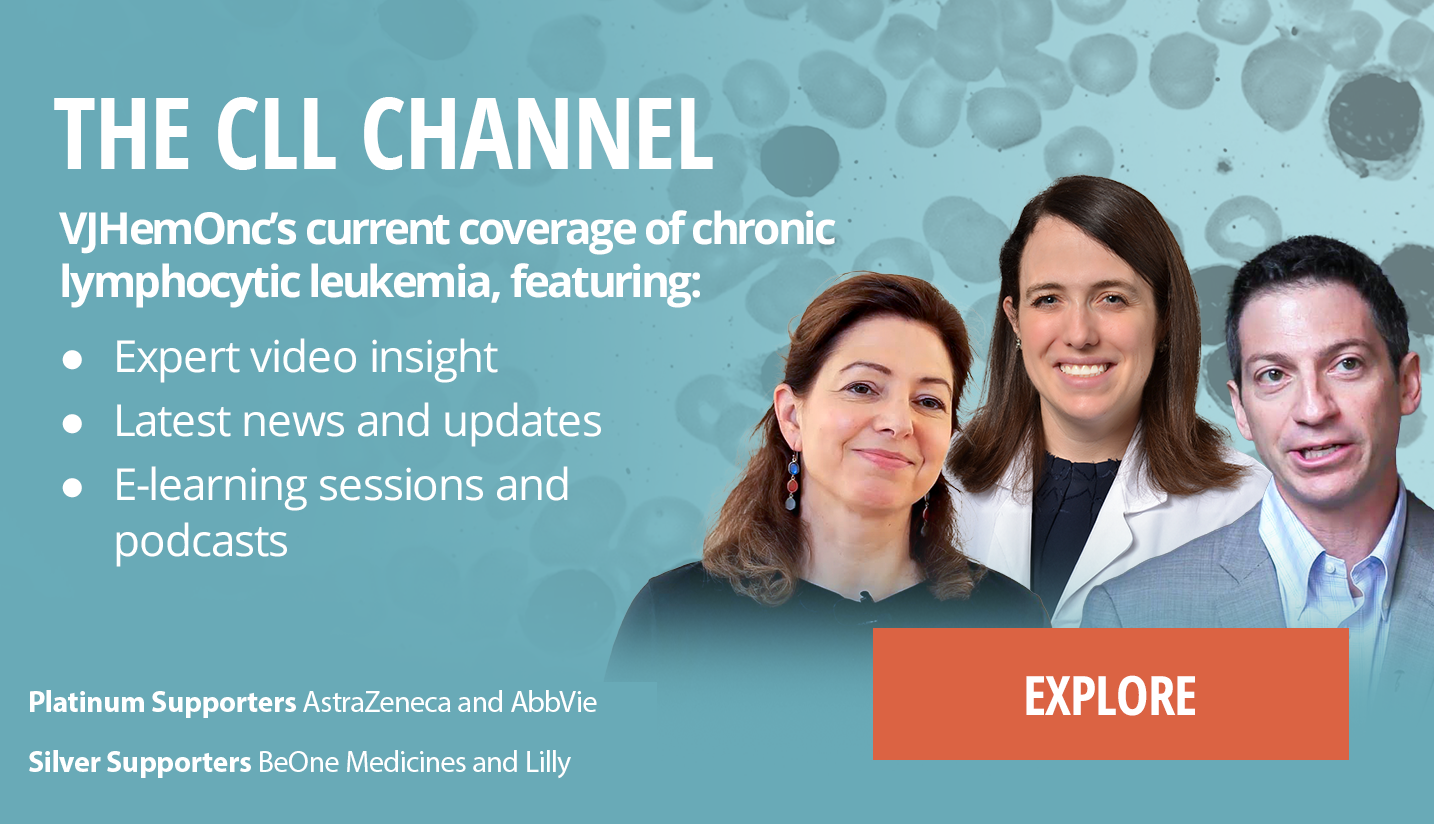Here I’m presenting results of a Phase I trial of epcoritamab, a CD3xCD20 targeting bispecific antibody in patients with relapsed/refractory chronic lymphocytic leukemia. As targeted therapies have made advances in treatment of CLL and chemotherapy essentially has been ousted from our armamentarium, there is now an unmet need that’s emerging, which is patients who are refractory to BCL2 inhibitor venetoclax and have also progressed on BTK inhibitors such as ibrutinib, acalabrutinib and zanubrutinib...
Here I’m presenting results of a Phase I trial of epcoritamab, a CD3xCD20 targeting bispecific antibody in patients with relapsed/refractory chronic lymphocytic leukemia. As targeted therapies have made advances in treatment of CLL and chemotherapy essentially has been ousted from our armamentarium, there is now an unmet need that’s emerging, which is patients who are refractory to BCL2 inhibitor venetoclax and have also progressed on BTK inhibitors such as ibrutinib, acalabrutinib and zanubrutinib. And there are very few effective therapies in that space. This is exactly where we started epcoritamab. And the majority of patients were double refractory. Two-thirds of the patients also carried a P53 abnormality, such as deletion 17p, and median number of prior lines of therapy was four. So those were heavily pretreated patients, and almost all of them also had chemoimmunotherapy in the past. So the study enrolled 40 patients in two cohorts. The expansion cohort enrolled 23 patients, and the optimized cohort enrolled 17 patients. So we have longer follow-up on the expansion cohort among those 23 patients with a median follow-up time of roughly two years. And what we see is overall response rate of roughly 60% and complete response rate of about 40%, which is very impressive for a single agent, subcutaneous agent in this heavily pretreated patient population. And importantly, this response is maintained among patients with P53 mutations, double refractory patients, patients with unmutated IGHV, so this agent works regardless of the high-risk genetic features that CLL patients might have in that setting. And progression-free survival is about 12 months at this point median. And in the optimization cohort, we also address the issue of cytokine release syndrome, which is common with bispecific antibodies. An additional step-up dose of 3 mg epcoritamab has been introduced. In addition, there was mandated use of dexamethasone as well as hydration to mitigate CRS. As a result, there was a substantial decrease in frequency of CRS, and most cases of CRS were grade 1 in the optimized cohort. There were no cases of grade 3 CRS, no cases of clinical TLS, and also importantly, no cases of ICANS or neurotoxicity. So in sum, this is a very effective agent which has shown great response results in patients with highly refractory CLL, and it is also well tolerated where CRS risk can be effectively mitigated by current strategies.
This transcript is AI-generated. While we strive for accuracy, please verify this copy with the video.















